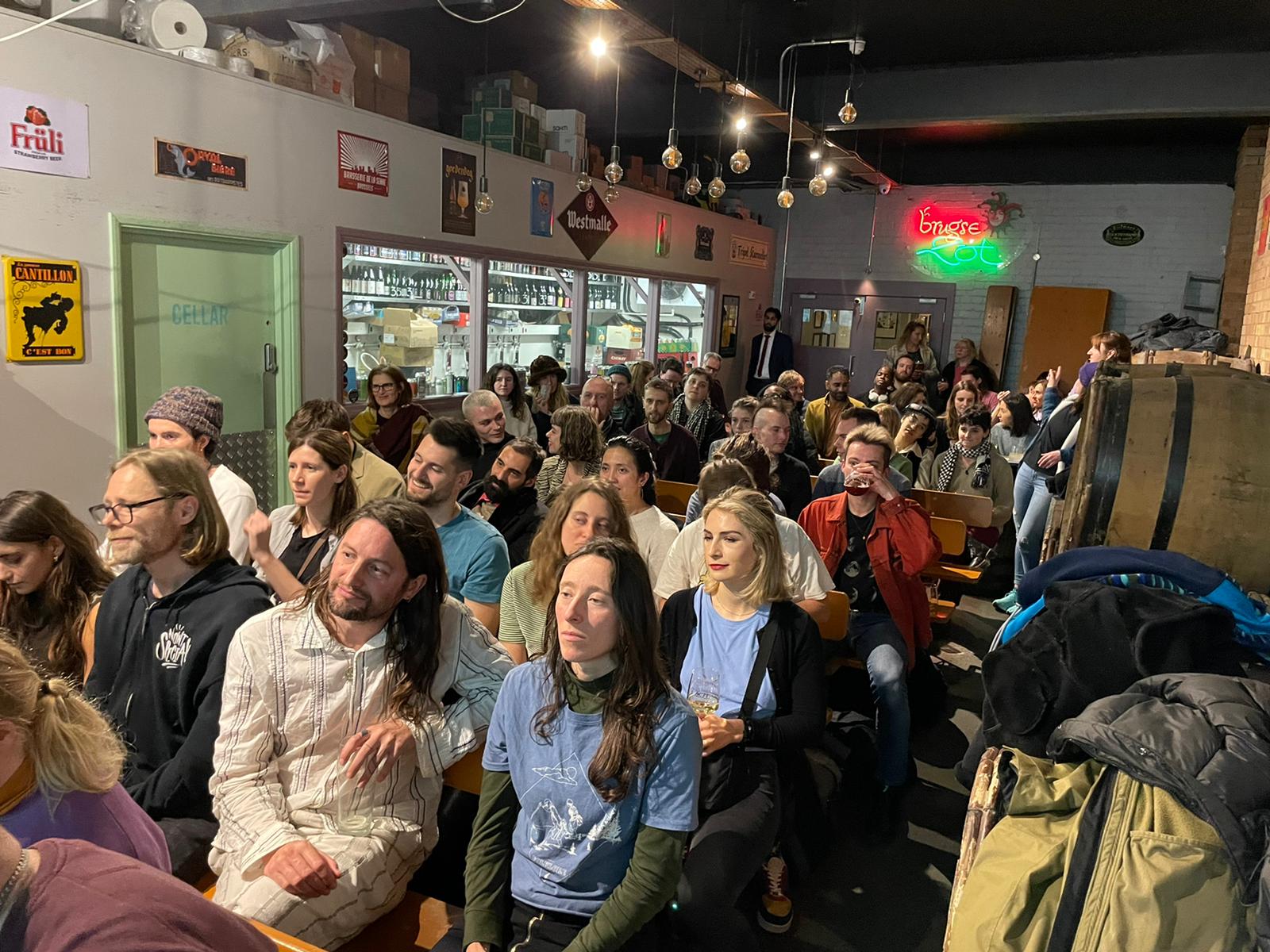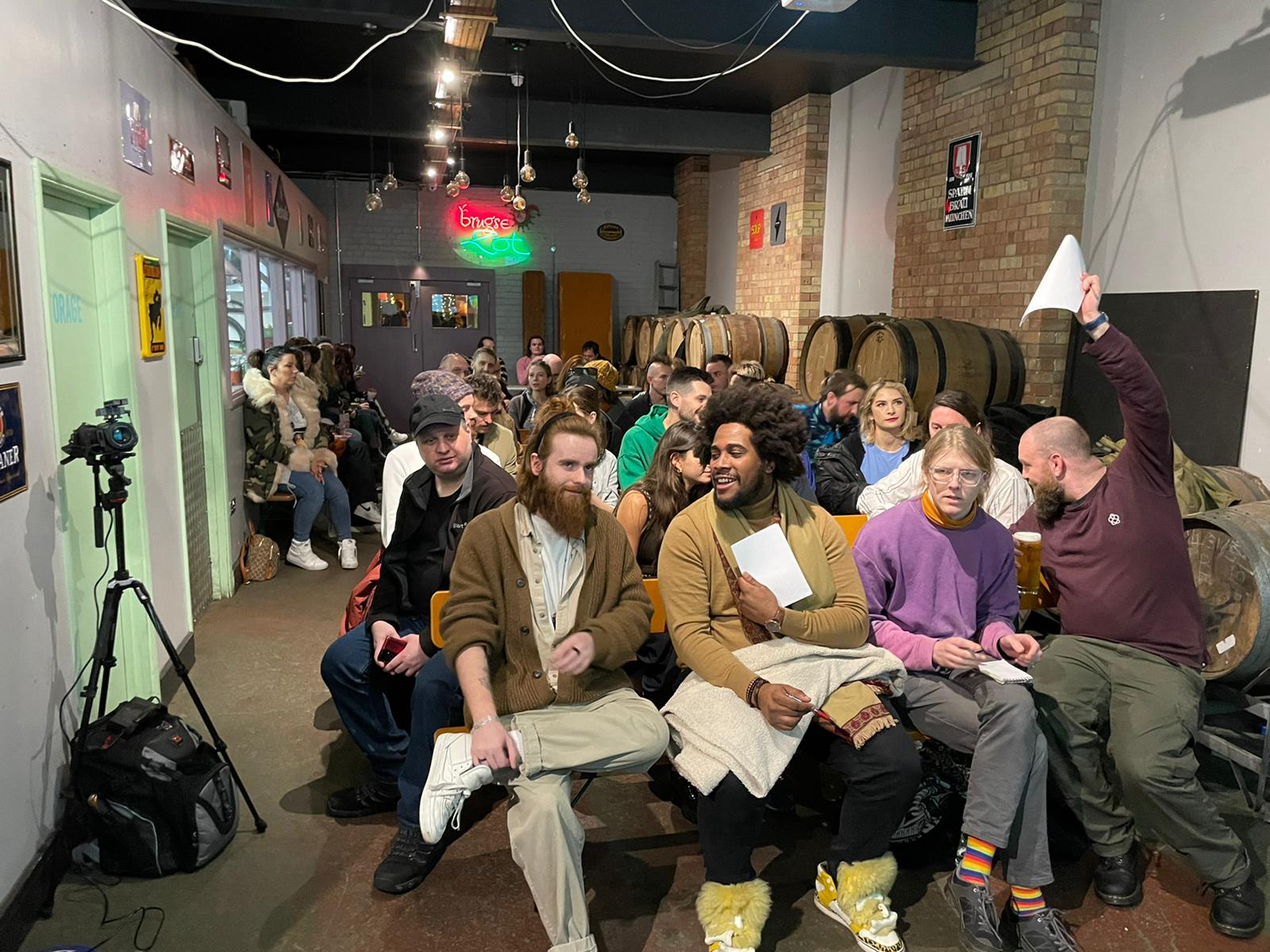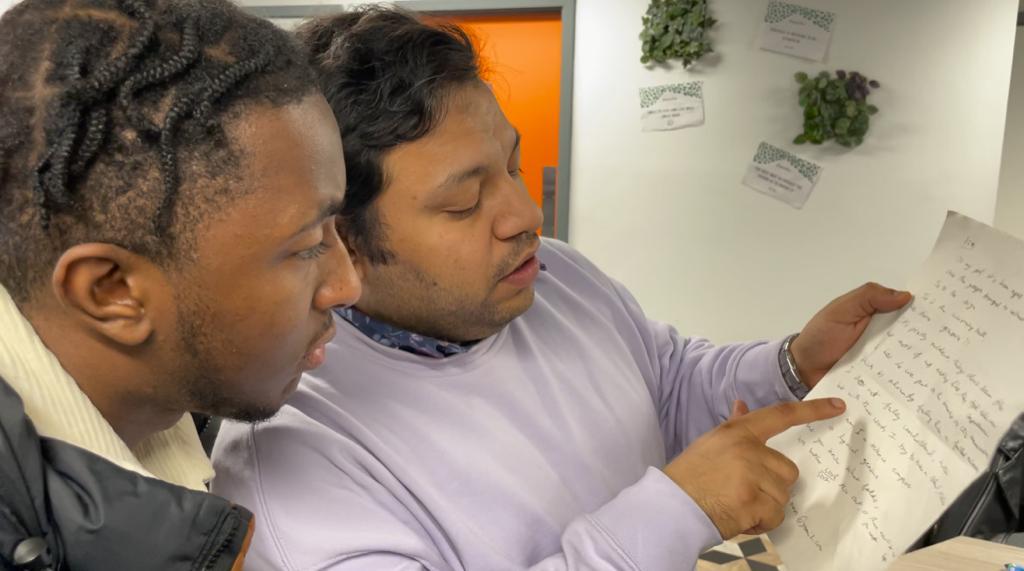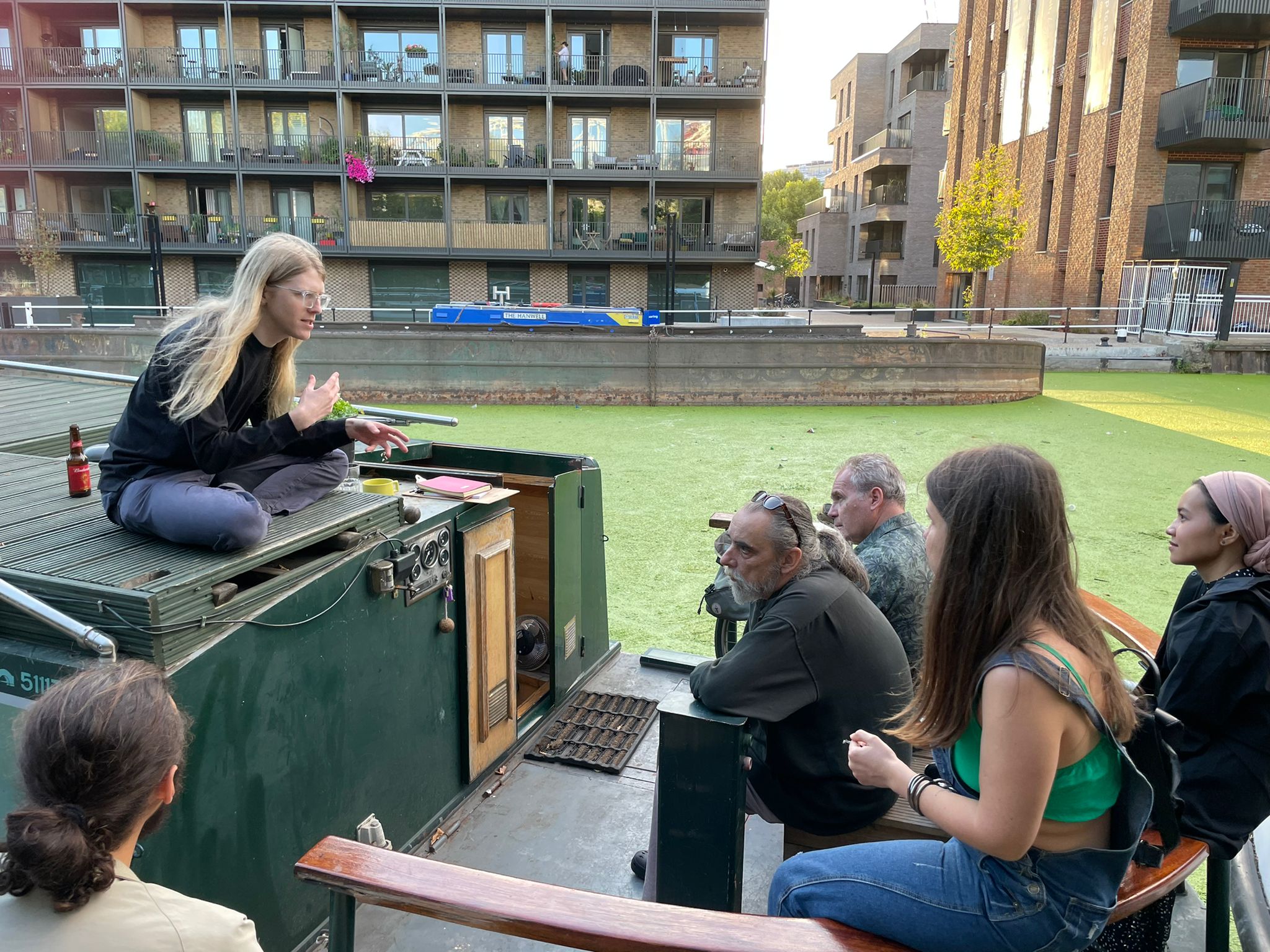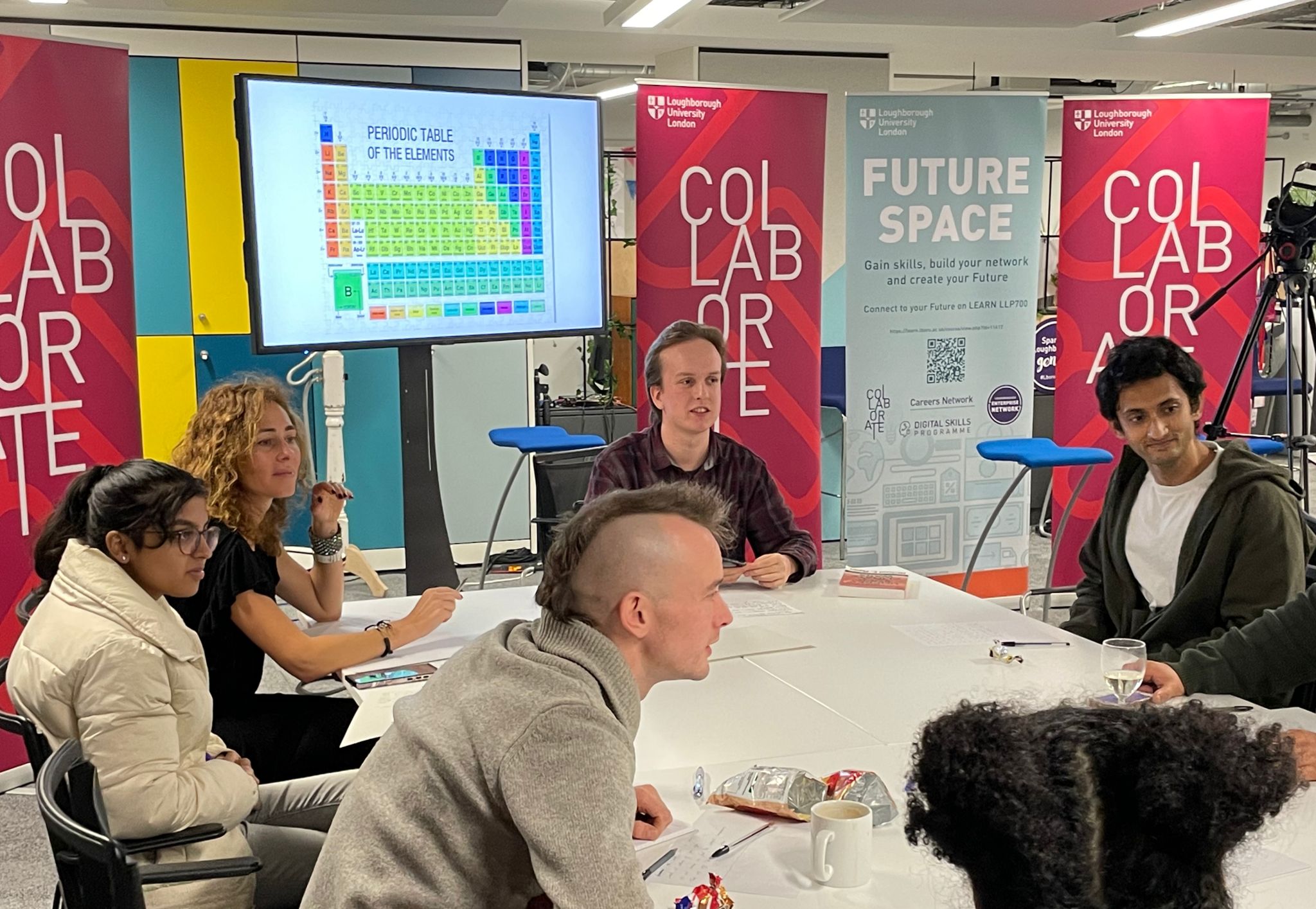Public Diplomacy Grant Honors Yale Professor
Nathan Higham, a 28-year old theatre-maker from Chatham, Kent took first place in the Tobias-Shaw Climate Theatre’s inaugural “Climate Slam,” a spoken word poetry competition that honors Yale professor Mark Pagani, leading authority on the history of CO2 when he passed away at 57, six years ago.
Higham won 350 pounds and “the Pagani”, a votive candle designed by Vermont artist Luciana Frigerio, to be awarded annually to the most creative scientifically-informed performance addressing climate change.
The event – part of the U.S. State Department´s Public Diplomacy program – followed months of activities that convened researchers from the U.S. and the U.K. with poets from across England.
Dr. Robin Lamboll, an Imperial College physicist — and former UK slam poet champion — provided a framework for the competition, suggesting that participants find scientific infographics to frame their work and overcome what he describes as a poet´s ¨lack of authority”.
Poetry slams typically begin with a “sacrificial poem”, in this case delivered by Project Manager Eric Ellman, with an infographic demonstrating how even UK youth — the demographic most concerned about climate change, do not understand that human activity accounts for 100% of observed warming.
Ellman’s first effort at poetry asked…
“Why change behaviour when there’s still room for doubt that human activity is entirely what it’s about?”
Contest winner Higham counts himself among those who were concerned, but unenlightened regarding the extent of human responsibility:
“…someone like myself who felt climate informed was able to not only recognize the gaps in my understanding but begin to bridge it and create as a result.”
Casey Breeden, a Spanish teacher at Harris Academy Beckenham in south east London, was similarly inspired, delivering an electrifying interpretation of the Keeling Curve, a 70-year record of atmospheric CO2. In a subsequent letter to program organisers he committed to carrying the effort forward, writing: “as Creator of Poets Palace, Crystal Palace it’s been my long term aim to bring spoken word workshops into schools….I have already tested a model workshop recently at the school I work at with some excellent results. I believe the future collaboration of artists, scientists and educators could bring even more exciting ones.”
With London creatives’ collective appetite for science proven, program organizers plan to provide much more. A three-year plan envisions expanding the program to embrace playwrights, comedians and musicians with a vision of creating a musical utilising spoken word performance that does for climate science what “Hamilton” did for American History.
Says the first Pagani winner, Higham, “I’m on board for all of it. Hamilton, workshops in schools, helping other poets bridge the science and rhyme gap, creating projects to bring to science through multiple mediums to any audience. I had a great time learning and I know that with the right tools other people could find the joy I did.”


